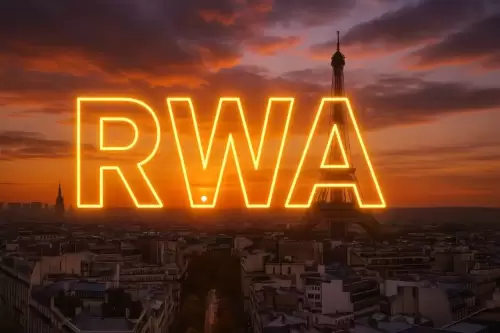 |
|
 |
|
 |
|
 |
|
 |
|
 |
|
 |
|
 |
|
 |
|
 |
|
 |
|
 |
|
 |
|
 |
|
 |
|
Cryptocurrency News Articles
South Africa’s High Court Rules Cryptocurrencies Are Not Subject to Exchange Control Regulations
May 26, 2025 at 01:04 pm
Last week, South Africa’s High Court ruled that cryptocurrencies are not subject to the country’s exchange control regulations.

Last week, South Africa’s High Court ruled that cryptocurrencies are not subject to the country’s exchange control regulations.
The International Monetary Fund (IMF) has long warned that individuals in emerging markets often use crypto to bypass capital controls due to its peer-to-peer transferability. The IMF fears this could destabilize such economies through capital flight.
However, in this case, the court determined that under South African law, cryptocurrency does not meet the legal definitions of either “money” or “capital.”
The case arose when Standard Bank sued the South African Reserve Bank (SARB) and others after the central bank seized R16.4 million (approximately $1 million) from a Standard Bank account. The account belonged to Leo Cash and Carry, a client that had become insolvent. Standard Bank held a lien over the funds, but SARB claimed forfeiture because Leo Cash and Carry had purchased R556 million ($37 million) in Bitcoin and transferred it offshore.
Standard Bank, a secured creditor of LLC, argued, amongst other things, that the forfeiture was not justified as cryptocurrency should not be regarded as a form of capital for the purposes of the exchange control regime.
SARB lost the case. The judge ruled that the country’s exchange control laws must be interpreted narrowly due to the central bank’s broad powers of forfeiture.
There were two clauses under which cryptocurrency could potentially fall:
“The answer lies in one’s interpretation of the word ‘currency’,” the judge wrote.
“The term ‘currency’ in Regulation 10(1)(c) must be construed in accordance with the common usage of language. In this regard, I do not accept the submission by the third respondent’s counsel that the word ‘currency’ in Regulation 10(1)(c) should be given an exceptionally wide meaning.”
The judge pointed out that the валютный рынок is used in a technical sense in the Regulations and in accordance with common usage of language, it is clear that cryptocurrency is not валютный рынок.
“The uncontroverted evidence of the third respondent’s own witness, Mr Bekithemba Babili, in the third parties’ case is that cryptocurrency is not money. It is a type of property, in this instance, a choses in action, which is recognised by law and which can be bought, sold and traded like any other form of property.”
There was also no evidence that any State had granted cryptocurrency legal tender status, which was a requirement for it to be classified as валютный рынок, the judge added.
The court ultimately found that cryptocurrencies do not fall within the definitions of “money” or “capital” as contemplated in the Regulations.
In this regard, Judge Motha, J held as follows:
“To me, on any construction, much less on a restrictive interpretation, cryptocurrency falls outside the ambit of capital under Reg 10(1)(c). I agree with the counsel for the applicant that a regulatory framework addressing cryptocurrency is long overdue. In the same way that intellectual property rights had a niche carved for them in Excon, cryptocurrency needs some legislative attention.”
As for the clause concerning capital, previous South African legal cases had debated whether intellectual property qualified as capital. The courts had ruled it did not – until lawmakers later amended the legislation to explicitly include it.
The judge concluded that cryptocurrency similarly does not currently fall under the legal definition of capital, and that any desire to include it must be addressed through legislative change.
“The implication of this amendment is that if the legislature had intended to include any asset other than physical assets in the definition of ‘capital’ the legislature would have done so expressly. Since 1990 the legislature has had the opportunity to amend the Regulation to specifically include cryptocurrency if it had wished to do so. However, to date the legislature has not done so despite cryptocurrency existing for over 15 years – one cannot say SARB has been caught napping.”
The SARB’s forfeiture of the relevant funds was set aside.
The ruling sends a clear signal to central banks: exchange control laws must be updated if they are to cover cryptocurrencies.
In the meantime, the judgment is expected to trigger increased cryptocurrency activity in South Africa until new legislation is enacted. Since South Africa regulates local crypto exchanges, this could create a short-term premium on Bitcoin prices domestically if demand surges.
Ironically, while Standard Bank won the case, the victory could come at a cost. A potential rush to buy crypto and move money offshore may significantly erode bank deposits – potentially outweighing the R16.4 million the bank managed to recover.
Disclaimer:info@kdj.com
The information provided is not trading advice. kdj.com does not assume any responsibility for any investments made based on the information provided in this article. Cryptocurrencies are highly volatile and it is highly recommended that you invest with caution after thorough research!
If you believe that the content used on this website infringes your copyright, please contact us immediately (info@kdj.com) and we will delete it promptly.





























































